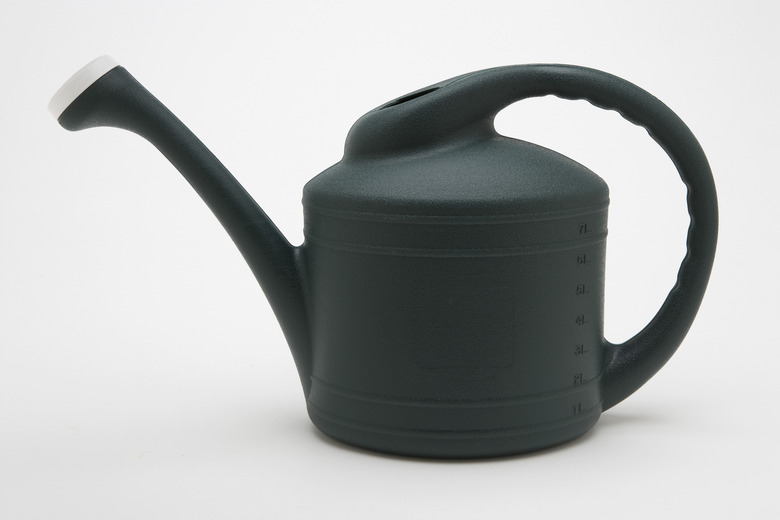Will Blood Meal Dissolve In Water?
Blood meal is a high-nitrogen, organic fertilizer that is made from dried cow's blood. It typically comes in a granular form and is a deep, reddish-brown with a pronounced odor. Most forms of blood meal won't dissolve in water, but a few blood meal-based products are specifically formulated to do so.
Step 1
Although blood meal slowly breaks down in warm, moist soil, it doesn't dissolve well if added directly to water. Unless the blood meal is specifically labeled as water-soluble, you'll likely end up with a smelly, grainy mess.
Directions
Step 1
You can easily dilute a water-soluble blood meal product with water, according to package directions or typically at a rate of 1 tablespoon per gallon. Use these products as a foliar spray or add them to an irrigation dripline. However, most blood meal products available on the market are not water soluble. These products should be added directly to the soil at a rate of 1 cup per 20 square feet of soil, or according to package directions. Add blood meal in the spring before you plant a vegetable garden and again every two months during the growing season. Blood meal can also be used to fertilize perennials in the spring. Sprinkle the blood meal over the soil and lightly till it to a depth of 4 inches, or simply spread it over the soil and allow it to break down over time.
Step 2
- Although blood meal slowly breaks down in warm, moist soil, it doesn't dissolve well if added directly to water.
- Sprinkle the blood meal over the soil and lightly till it to a depth of 4 inches, or simply spread it over the soil and allow it to break down over time.
Benefits
Step 1
Like any water-soluble fertilizer, the benefit of using a liquid form of blood meal is that plants can access the nitrogen in it immediately. Keep in mind, though, that blood meal is very high in nitrogen. It has a nutrient analysis of 12-0-0 and can burn plants if applied incorrectly or in large doses. One of the benefits of granular blood meal is that it breaks down slowly, so you only need to apply it once every two or three months. In warm, moist conditions, blood meal might decompose too quickly and burn plants. Don't use it around young, tender seedlings, and spread it at least 6 inches away from the stems of all other plants.
Uses
Step 1
Although water-soluble blood meal has limited applications, dry, granular blood meal is quite versatile. You can add a cup of blood meal to a compost pile to jump-start the composting process. This is especially helpful if the compost pile contains more carbon-rich ingredients, such as paper, straw or dried leaves, than fresh, leafy plants that are high in nitrogen. Blood meal can also be used to discourage rabbits and deer from your garden. Set blood meal in plastic cups around the garden. It remains effective so long as it stays dry.
Step 2
- Like any water-soluble fertilizer, the benefit of using a liquid form of blood meal is that plants can access the nitrogen in it immediately.
- One of the benefits of granular blood meal is that it breaks down slowly, so you only need to apply it once every two or three months.
